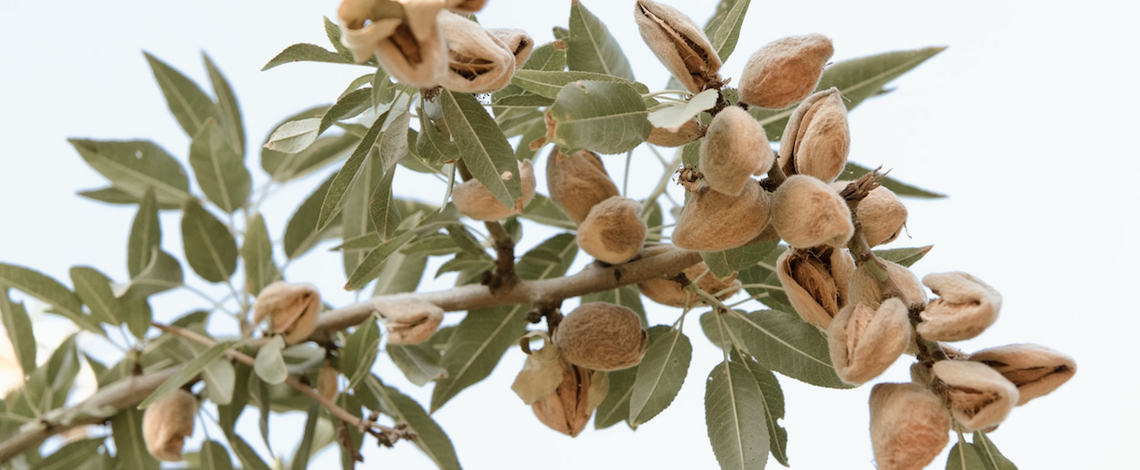
Almond photo by Marcia Cripps via unsplash.com.
Written by Frank Lopez
A Central Valley nut company is teaming up with a soil nutrient producer to start a new kind of almond processing facility.
Earlimart-based Treehouse California Almonds announced that it is partnering with Soledad-based biochar producer Sitos Group to launch a $9 million dollar slow pyrolysis manufacturing facility in Delano.
Biochar is a charcoal-like material created by heating organic materials such as wood chips, plant residue or manure and can be used to improve soil health. The process is known as pyrolysis.
The 25,000 square foot facility is expected to be fully operational by the end of 2025 and will be the company’s first commercial system with a direct tie to agriculture on the West Coast.
The facility will transform almond shells, processed through Treehouse Almond’s hulling and shelling operations into biochar—repurposing agricultural co-products for sustainable use.
The $9 million project is currently funded by private investment from Sitos Group shareholders and will ultimately be funded through New Markets Tax Credits.
“As climate change continues to come to the forefront of agriculture, this partnership with Sitos Group represents another leading step forward in our company’s commitment to climate-smart action and regenerative agriculture in the almond category,” said Mark Masten, president of Treehouse California Almonds. “We see this partnership as a tremendous advancement not only for our orchards and California’s environment, but also for our growers and business partners – for many years to come.”
Biochar’s stable carbon structure resists decomposition, preventing the release of methane into the atmosphere and sequesters it in soil for centuries, according to a news release. This carbon sink enhances soil quality by improving moisture retention, increasing nutrient holding capacity, and providing a habitat for beneficial microorganisms.
Biochar can improv crop yields, especially in nutrient-poor or degraded soils, while also reducing the need for chemical fertilizers, according to Treehouse California Almonds.
When the project is complete, the plant will be able to process 6,000 pounds of almond shell per hour. The plant will have three slow-pyrolysis units placed side by side, operating as a single unit, and feature a fully integrated drying system with emissions and dust control.
It will also have Organic Rankine Cycle (ORC) generators to repurpose heat energy from the pyrolysis units into clean electricity.
Inside Climate News reported that 125,000 tons of CO2 were removed worldwide by the durable carbon market, a carbon credit marketplace for human CO2 removal projects, with biochar being responsible for about 93% of that amount.
Sitos Group was co-founded by Steve McIntyre, owner of Monterey Pacific, LLC, which manages 20,000 acres of vineyards in Monterey, Napa, Lake, and San Luis Obispo counties.
Treehouse California Almonds is a partner with the Almond Project, a multi-year initiative aimed at advancing sustainable almond farming methods and preserving natural resources, enable ecosystem regeneration and protect farming communities.
“This landmark partnership with Treehouse California Almonds will establish our first commercial biochar facility, transforming almond shells into a powerful tool for carbon removal and regenerative agriculture. This project represents a significant step toward a circular economy in California’s agricultural sector, taking biochar production to a meaningful scale,” added Mayo Ryan, co-founder and CEO, Sitos Group.







